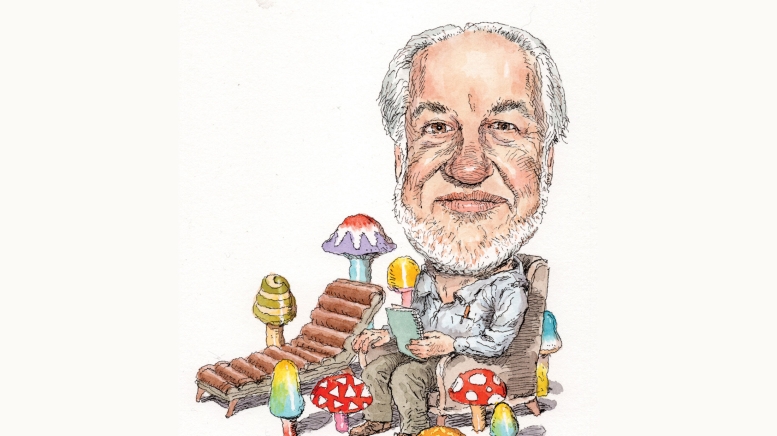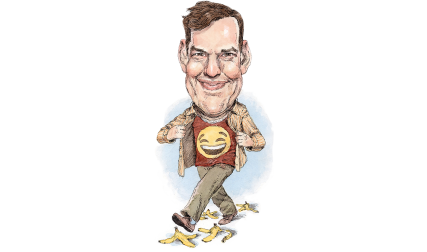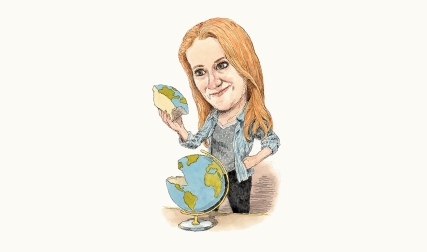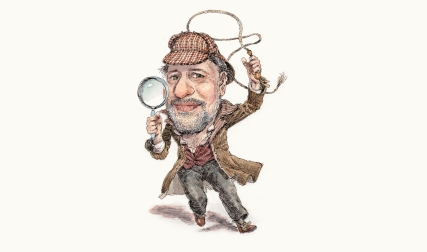Notable: Early adopter of LSD for therapeutic use; longtime researcher into psychedelics; helps prepare clients who wish to try psychedelic therapy
Career: A licensed psychologist in full-time psychotherapy practice; previously a faculty member, University of Maryland School of Medicine; researcher, Maryland Psychiatric Research Center
Education: A.B., psychology (Phi Beta Kappa); Ph.D., psychology, Stanford, 1971
Personal: Lives in Baltimore with partner Marilyn Clark
“I’m pretty sure I was the first student to take LSD on the Dartmouth campus. The second was a friend who took it about 20 minutes later. An upperclassman who had taken it in New York City had a connection. As a psychology major, I’d been reading a lot about psychedelics, which in 1960s literature was almost exclusively about LSD.”
“My friend and I both had very powerful experiences, and I was convinced of the value of such experiences.”
“I applied to Stanford because I’d heard about a psychedelic research center in Menlo Park. When I went there to look for work, guys were packing up, shut down by new government regulations. One guy who had done a master’s at Stanford told me, ‘Stay at Stanford, get your Ph.D., but do not mention LSD or psychedelics until the ink is dry on your diploma.’ I followed that advice and focused on hypnosis.”
“I felt very fortunate that the Maryland Psychiatric Research Center hired me. It was probably the last place in America still doing psychedelic research, but that got phased out in 1976. After writing a paper about the positive results of psychedelic-assisted psychotherapy with alcoholics, I was one of the last to leave.”
“There was probably sincere fear in the FDA and elsewhere in government about the dangers of LSD to the public, but a lot of the opposition was political. When Richard Nixon declared Timothy Leary ‘the most dangerous man in America,’ he was saying, ‘Psychedelic drugs provide people with experiences that threaten my power structure.’ ”
“When LSD use was banned in 1968 there was already a huge underground movement. Everybody in it knew you had to have your own experience to have any validity as a psychedelic psychotherapist. One of my colleagues carried the torch for many years until he was able to ignite the now enormous activity at Johns Hopkins, a leader in studying psychedelics and psilocybin therapy.”
“In psychedelic communities—now primarily psilocybin users—there are a number of drug sources known to be reliable and wonderful people working very hard to address addiction, depression, and larger existential issues to help humanity evolve. My partner and I are elder figures in one such group.”
“Within any user community, even if well vetted, there will be psychopaths and hucksters whose hearts aren’t into psychedelics with the right spirit, but that percentage is very small.”
“You have to prepare for an experience thoroughly. So-called ‘bad trips’ are most often caused by lack of preparation or failure to complete the journey. It’s important to bond with the person who will sit with you. Earphones, eyeshades, and the right music enhance the journey. I recommend a practice session without any drug. People who have practiced meditation have an advantage because they are used to surrendering to the subjective current of the psyche.”
“Getting therapy myself, which I feel is crucial, widened my lens about what psychotherapy is and what it can do.”
“The use of psychedelics not only helps us experience our connection to all of nature and all of humanity. It also leads to more kindness.”




